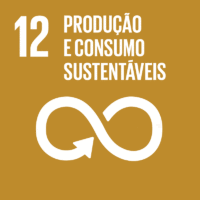Ciência_Iscte
Publicações
Descrição Detalhada da Publicação
Título Revista
Anatolia
Ano (publicação definitiva)
2019
Língua
Inglês
País
Turquia
Mais Informação
Web of Science®
Scopus
Google Scholar
Esta publicação não está indexada no Overton
Abstract/Resumo
Wine experiences contributed to attracting tourists to the destinations, in particular in Portugal where wine is worldwide renowned. This research aims to understand what drives tourists to visit a destination to live a wine experience and how this experience may improve the image and retain tourists. This model conceptual in its essence was applied in an emergent wine region in Portugal – Lisbon. Data were collected in 16 wineries from a random sample of 314 visitors in an emergent wine region, and structural equation modelling (SEM) was applied. Structural equation modelling was used to test hypotheses and validate the conceptual model. Results show
that motivation positively influences the wine experiences, which in turn is explained by the dimensions presented in the study. Furthermore, the wine experience influences image and satisfaction positively and the brand equity negatively. From the managerial perspective, implications are discussed as well as the main limitations, and then suggestions for further research are provided.
Agradecimentos/Acknowledgements
--
Palavras-chave
Wine tourism,Gastronomy,Wine experience,Tourism experience,Destination image
Classificação Fields of Science and Technology
- Ciências da Terra e do Ambiente - Ciências Naturais
- Geografia Económica e Social - Ciências Sociais
Registos de financiamentos
| Referência de financiamento | Entidade Financiadora |
|---|---|
| UID/GES/00315/2019 | Fundação para a Ciência e a Tecnologia |
Contribuições para os Objetivos do Desenvolvimento Sustentável das Nações Unidas
Com o objetivo de aumentar a investigação direcionada para o cumprimento dos Objetivos do Desenvolvimento Sustentável para 2030 das Nações Unidas, é disponibilizada no Ciência_Iscte a possibilidade de associação, quando aplicável, dos artigos científicos aos Objetivos do Desenvolvimento Sustentável. Estes são os Objetivos do Desenvolvimento Sustentável identificados pelo(s) autor(es) para esta publicação. Para uma informação detalhada dos Objetivos do Desenvolvimento Sustentável, clique aqui.

 English
English



